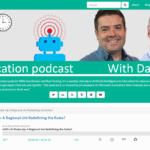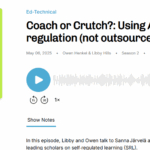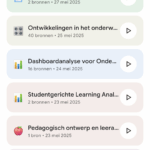In ruil voor een blik stroopwafels is deze post in het Engels. ![]()
Today I was at the Bazaar Conference organised by the Bazaar project and IVLOS, the Institute of Education of Utrecht University.
The website had talked about a lot of different session forms and a flexible layout of the rooms.
The fact that the room where we started in didn’t allow for any changes in the set-up of the chairs meant that the organisers had to come up with a different plan.
Instead we were now divided up in three groups after the opening by Graham Attwell. Each group was assigned a room and the three ‘presenters’ for the morning sessions moved from room to room for each session. This way every group was visited by each of the presenters. In the afternoon there were three different presenters and the groups had changed.
Disadvantage of this format is that participants can no longer move around to choose the session they want to be in. But luckily for us the presenters understood the format well and made sure that we as participants did at least as much of the talking as they did. Some notes and links from the sessions:
Wolfgrang Greller used the Delphi method ask us about the role(s) the community plays in Lifelong Competence Development. During the brainstorm we came up with roles, then we prioritised them and he was going to combine the results of the three groups into one overview of roles. I hope he’ll post them online.
Veronika Homung from Salzburg Research talked about Online learning and sharing
Linktip: Open eLearning Content Observatory Services
The site amongst other things contains Tutorials and a Roadmap about Open Educational Resources which you can download or order.
Another Linktip: WikiEducator
Why Open Educational Resources?
* less cost for producer? (maybe in future)
* keep access to knowledge
* closing the gaps between the “have’s” and the “have not’s”
* value of community developed material => allowed to change / adopt / content
* feedback of the group is important
* increase of quality in information
Josie Fraser (see: Google) talked about Social networking services & social search. About how much people can find out about you online, whether you want that or not. About the different social networking services etc.
Not mentioned during the session: an interesting presentation by Polle de Maagt about Social Networks in the UK v.s. The Netherlands shows the differences in use of social networks in the UK and the Netherlands.
Steve Wheeler (picture) started his session about the use of wikis and open architecture spaces to promote a culture of sharing with a game. Without too much explaination he divided us up into three groups and handed each group a stack of cards. One half with questions, the other half with answers. The task was to match the questions and answers as quickly as possible. The group that did this the fastes would win.
Of course the competition was rigged. We didn’t have all the answers and had to get the from one of the other teams. Also, some of the answers might look like an obvious fit to a question (a question about planets and and answer card with a planet name) but weren’t. Steve was the authority that told us whether a match was correct.
Enough stuff to talk about in relation to Wiki’s.
Linktips: http://dwjs-minimum-core.wikispaces.com/ and the activities page in the Wiki.
Steve talked about the five stages in use of a wiki, but I wasn’t fast enough to write them down. Will have to wait until the slides are online. Main point of that: You need engaging activities to ‘force’ students to work with a wiki.
Marco Kalz talked about factors that play a role during the development of Open Educational Resources:
* Incentives – individual motivation (altruism) but also need for similar mechanism like citation analysis
* Sharing Group
* Licensing – need to be easy
* Authoring Environments – need to be easy
* Granularity – do we know what the correct leve is?
* Metadata – combine tagging with traditional metadata
During Helen Keegan’s session, one comment about a student’s blog struck me in particular. It was a student that posted his music online for people and other students to listen to. But the page said “all rights reserved by me”. Helen said that it is important to teach students about copyright so that they think about what they want to share. So that in this case the student made his own choice to not share any further than the blog.
So it is not just “Show that you Share” but also “Show that you don’t want to Share”. ![]()
During the plenary we talked about the notes that we all posted during the day on the flip charts for the themes. I didn’t take any notes during that discussion. That is of course the main disadvantage of a day like this.
All in all it was more than worth while the trip to Utrecht. Thanks everyone who organised the event today.





Ook ik heb een korte relectie geschreven op http://www.koopaladvies.nl/weet-u-wat… . Ik heb een beetje ‘mixed feelings’ aan de bijeenkomst over gehouden (maar ja, ik heb die Asus Eee ook gemist).